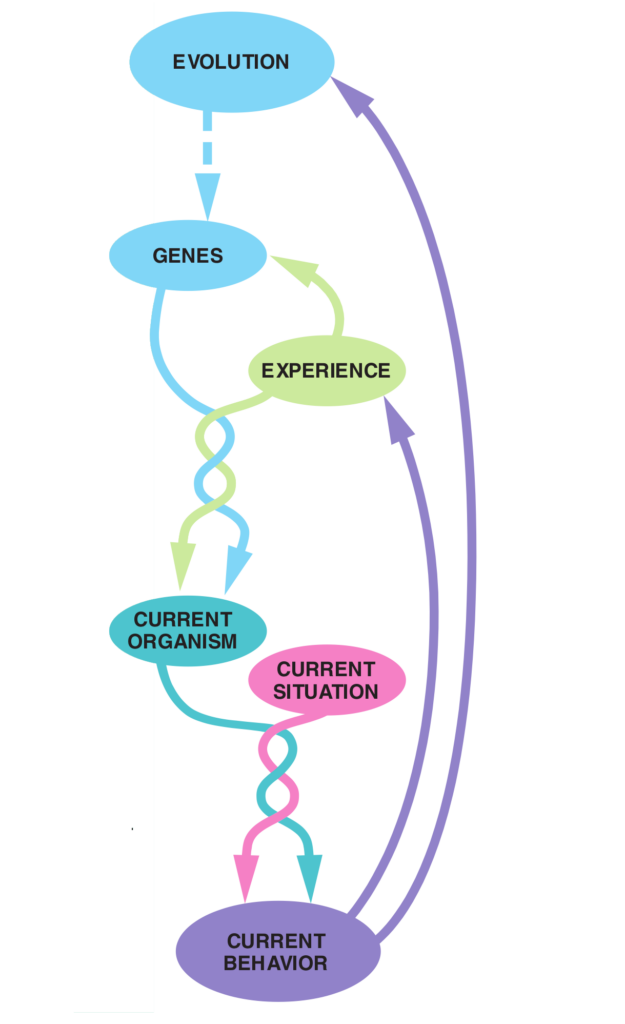The pursuit of happiness
What do humans want ultimately? The purpose of human behavior is not easily derived from a single universal driver. Psychologically, a singular driver of human beings is probably best described by a desire to leave a “footprint” or a heritage during lifetime and thereafter. This desire manifests itself by an urge to genetically reproduce oneself by means of producing and rearing offspring.
Human behavior is specifically designed to live up to this desire. Humans differ from other species in the sense that their attempt to leave a footprint extends beyond a solely genetic heritage through offspring. The heritage of human beings can additionally consist of material or immaterial structures. Through the use of language, humans possess the ability to leave a memematic heritage as well, which can consist of an idea, a story, an invention etc. which can be passed through to future generations. Also social relations can memematically become a lasting footprint for humans. Social recognition for example, can also last after one’s death. Examples of material “footprints” are physical arts, architecture a final will or a foundation. The idea of “footprint” striving humans reinforces a common held belief of psychologist and economists that people’s needs are fully self serving. This is largely true as most seemingly altruistic behavior is self serving behavior in disguise. However, this footprint needs to be seen in a wider inter-humanitarian context and therefore is not restricted to the individual level. Genetic relatedeness gives room for a non-beneficial trade off in genetic fitness. This trade off is for instance phrased by J.B.S. Haldane who famously joked that he would be willingly to die for two brothers or eight cousins. Self centered therefore is a better description than self serving to describe the behavioral mechanisms of humans.


